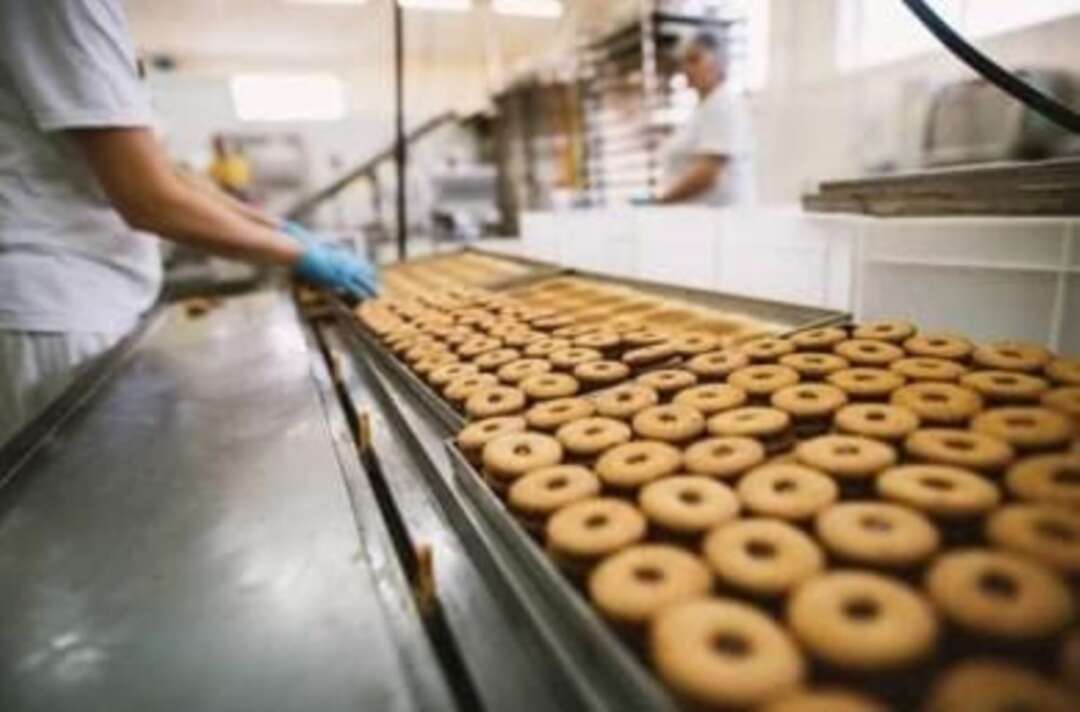-
Britain warns food industry Carbon dioxide prices will rise sharply

The Trust reported according to Reuters, Britain warned the food industry on Wednesday that carbon dioxide prices would rise sharply after offering tens of millions of dollars of state support to a fertiliser company to avert a food supply crunch.
Wholesale gas prices have soared this year as economies reopened from COVID-19 lockdowns and high demand for liquefied natural gas in Asia pushed down supplies to Europe, leading to a shortage of carbon dioxide (CO2) in the food industry.
Britain struck a deal with U.S. company CF Industries to restart production of carbon dioxide (CO2) at two plants - one in Billingham and another in Cheshire - which were shut because they were unprofitable due to the spike in their biggest cost: gas prices.
Environment Secretary George Eustice told Sky News: "We need the market to adjust, the food industry knows there's going to be a sharp rise in the cost of carbon dioxide."

He said the food industry would have to accept that the price of carbon dioxide would rise sharply, to around 1,000 pounds ($1,365) a tonne from 200 pounds a tonne. Eustice said: "So a big, sharp rise."
Read more: Green revolution could create thousands of jobs and save millions into UK economy
The three-week support for CF would cost "many millions, possibly the tens of millions but it's to underpin some of those fixed costs," Eustice told Sky. "These are two big expensive plants."
Some of Britain's meat and poultry processors would have run out of CO2 - also used to put the fizz in beer, cider and soft drinks - within days, forcing them to halt production.
Eustice said: "We know that if we did not act, then by this weekend or certainly by the early part of next week, some of the poultry processing plants would need to close."
Read more: Lithuania asks people to throw away Chinese phones over censorship concerns
"And then we would have animal welfare issues, because you'd have lots of chickens on farms that couldn't be slaughtered on time, and would have to be probably euthanized on farms, we'd have a similar situation with pigs, so there would have been a real animal welfare challenge here, and a big disruption to the food supply chain, so we felt we needed to act."
He said the impact on food prices would be negligible.
Source: trust
You May Also Like
Popular Posts
Caricature
BENEFIT Sponsors BuildHer...
- April 23, 2025
BENEFIT, the Kingdom’s innovator and leading company in Fintech and electronic financial transactions service, has sponsored the BuildHer CityHack 2025 Hackathon, a two-day event spearheaded by the College of Engineering and Technology at the Royal University for Women (RUW).
Aimed at secondary school students, the event brought together a distinguished group of academic professionals and technology experts to mentor and inspire young participants.
More than 100 high school students from across the Kingdom of Bahrain took part in the hackathon, which featured an intensive programme of training workshops and hands-on sessions. These activities were tailored to enhance participants’ critical thinking, collaborative problem-solving, and team-building capabilities, while also encouraging the development of practical and sustainable solutions to contemporary challenges using modern technological tools.
BENEFIT’s Chief Executive Mr. Abdulwahed AlJanahi, commented: “Our support for this educational hackathon reflects our long-term strategic vision to nurture the talents of emerging national youth and empower the next generation of accomplished female leaders in technology. By fostering creativity and innovation, we aim to contribute meaningfully to Bahrain’s comprehensive development goals and align with the aspirations outlined in the Kingdom’s Vision 2030—an ambition in which BENEFIT plays a central role.”
Professor Riyadh Yousif Hamzah, President of the Royal University for Women, commented: “This initiative reflects our commitment to advancing women in STEM fields. We're cultivating a generation of creative, solution-driven female leaders who will drive national development. Our partnership with BENEFIT exemplifies the powerful synergy between academia and private sector in supporting educational innovation.”
Hanan Abdulla Hasan, Senior Manager, PR & Communication at BENEFIT, said: “We are honoured to collaborate with RUW in supporting this remarkable technology-focused event. It highlights our commitment to social responsibility, and our ongoing efforts to enhance the digital and innovation capabilities of young Bahraini women and foster their ability to harness technological tools in the service of a smarter, more sustainable future.”
For his part, Dr. Humam ElAgha, Acting Dean of the College of Engineering and Technology at the University, said: “BuildHer CityHack 2025 embodies our hands-on approach to education. By tackling real-world problems through creative thinking and sustainable solutions, we're preparing women to thrive in the knowledge economy – a cornerstone of the University's vision.”
opinion
Report
ads
Newsletter
Subscribe to our mailing list to get the new updates!






















